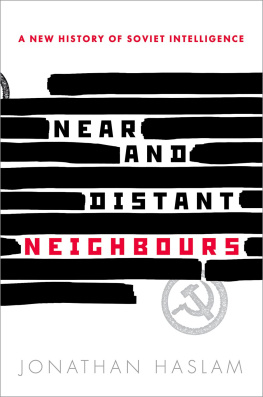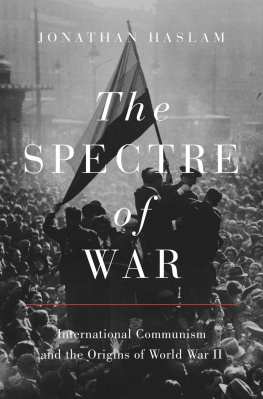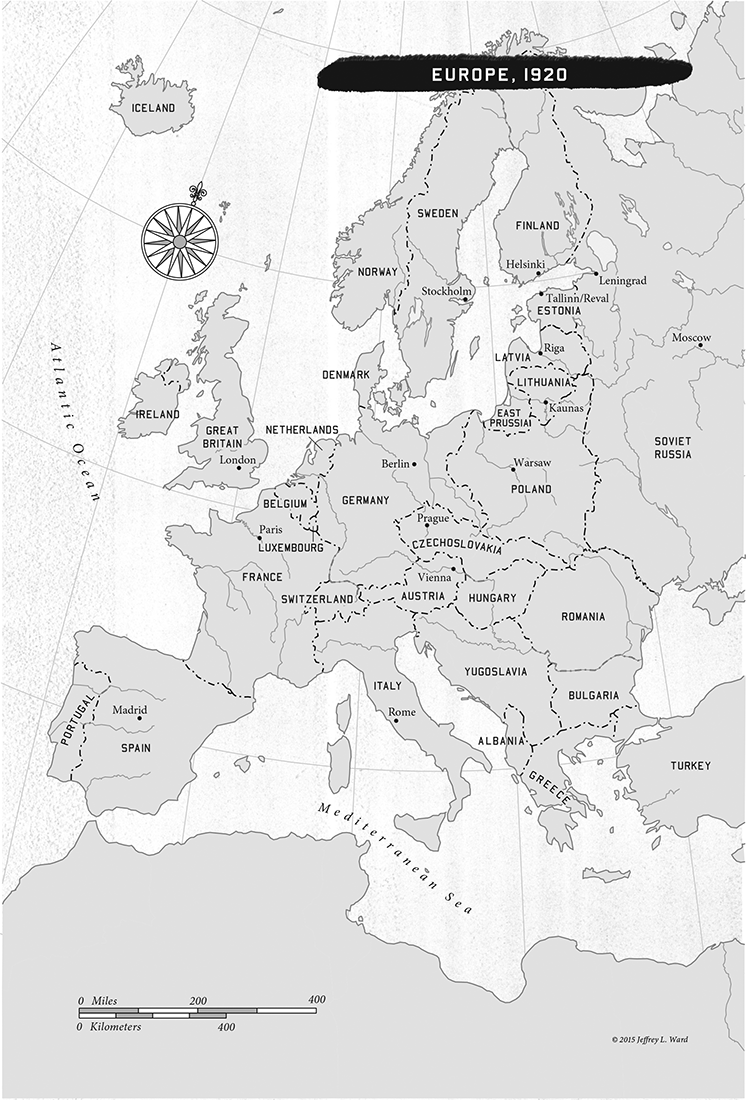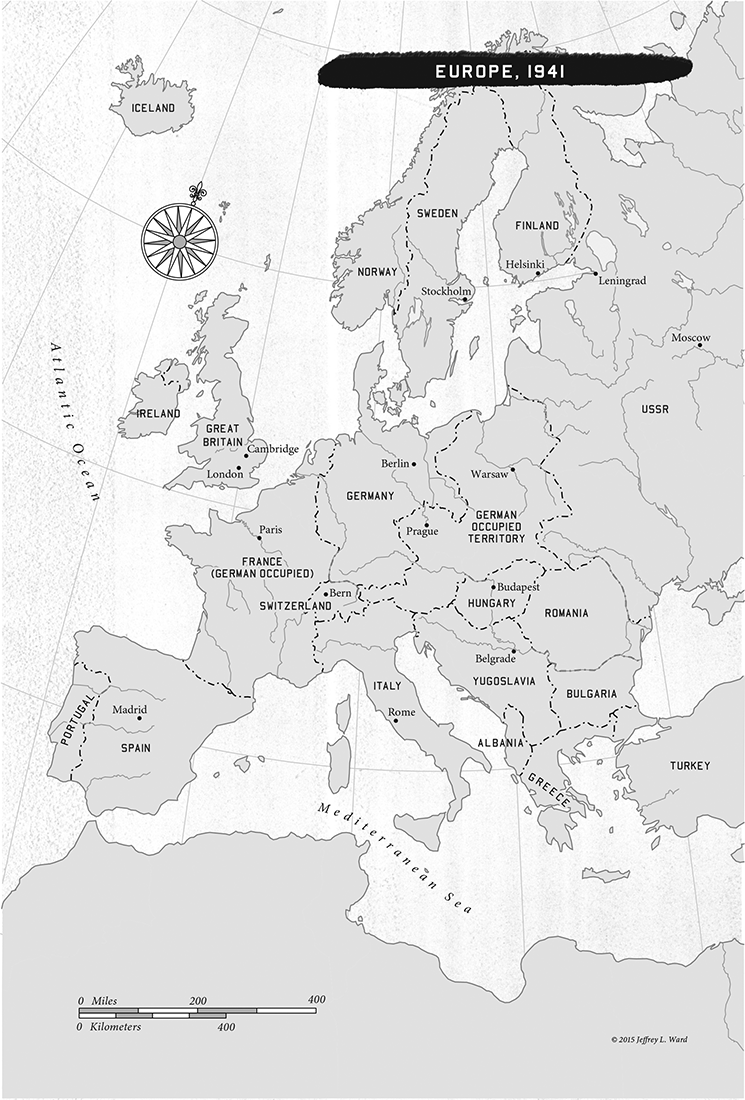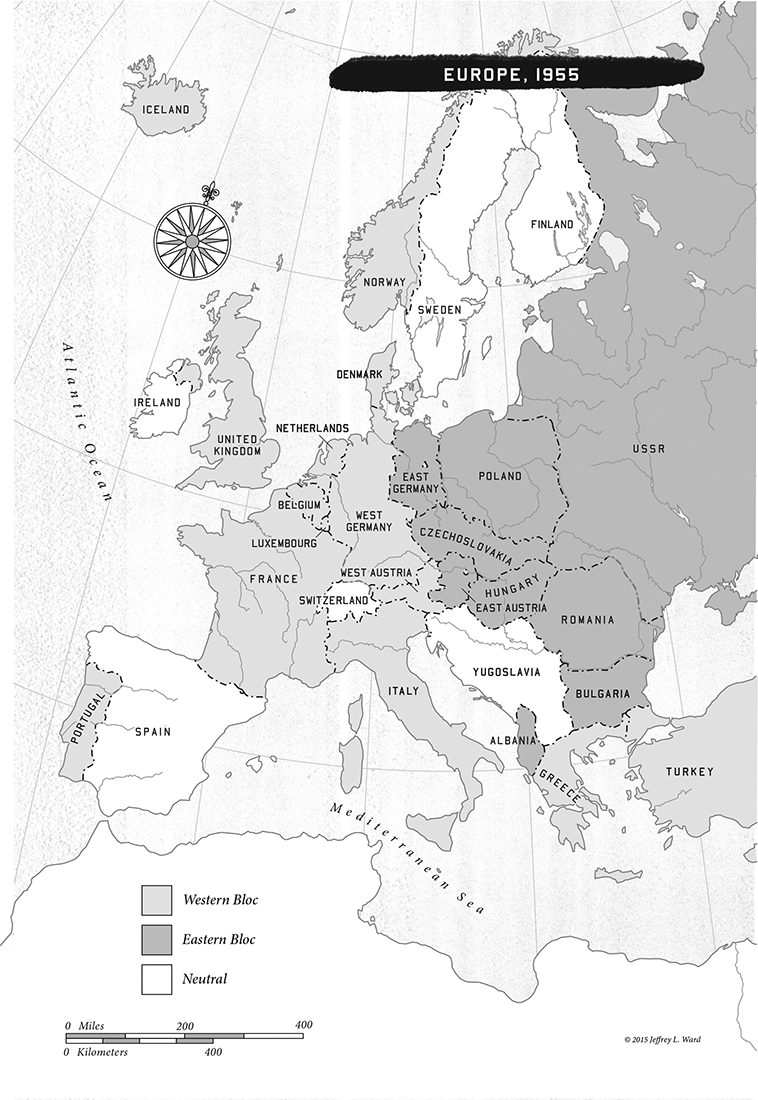ALSO BY JONATHAN HASLAM
Russias Cold War: From the October Revolution to the Fall of the Wall
The Nixon Administration and the Death of Allendes Chile: A Case of Assisted Suicide
No Virtue Like Necessity: Realist Thought in International Relations Since Machiavelli
The Vices of Integrity: E. H. Carr, 18921982
The Soviet Union and the Threat from the East, 193341: Moscow, Tokyo, and the Prelude of the Pacific War
The Soviet Union and the Politics of Nuclear Weapons in Europe, 196987
The Soviet Union and the Struggle for Collective Security in Europe, 193339
Soviet Foreign Policy, 193033: The Impact of the Depression
Near and Distant Neighbours

Great Clarendon Street, Oxford, OX2 6DP, United Kingdom
Oxford University Press is a department of the University of Oxford. It furthers the Universitys objective of excellence in research, scholarship, and education by publishing worldwide. Oxford is a registered trade mark of Oxford University Press in the UK and in certain other countries
Jonathan Haslam 2015
The moral rights of the author have been asserted
First Edition published in 2015
Impression: 1
All rights reserved. No part of this publication may be reproduced, stored in a retrieval system, or transmitted, in any form or by any means, without the prior permission in writing of Oxford University Press, or as expressly permitted by law, by licence or under terms agreed with the appropriate reprographics rights organization. Enquiries concerning reproduction outside the scope of the above should be sent to the Rights Department, Oxford University Press, at the address above
You must not circulate this work in any other form and you must impose this same condition on any acquirer
Published in the United States of America by Oxford University Press 198 Madison Avenue, New York, NY 10016, United States of America
British Library Cataloguing in Publication Data Data available
Library of Congress Control Number: 2014046634
ISBN 9780198708490
ebook ISBN 9780191018121
Printed in Great Britain by Clays Ltd, St Ives plc
Links to third party websites are provided by Oxford in good faith and for information only. Oxford disclaims any responsibility for the materials contained in any third party website referenced in this work.
Designed by Abby Kagam Maps Copyright 2015 by Jeffrey L. Ward
Intelligence is for us sacred, a matter of ideals. Stalin
Fear has large eyes. Russian proverb
Contents
Agenturist: operative responsible for running agents
Aktvnaya razvdka/aktvka (active intelligence): terrorism and sabotage
Aktvnye meropriytiya (active measures): black propaganda, dirty tricks, etc.
Boevye shifry: working ciphers
Bolshi Dom (literally, the Big House): Comintern; later the Lubyanka
Chertvyrtyi: the Fourth Directorate of the Staff/General Staff, later GRU
Dez (dezinformtsiya): disinformation
Enkavedst: employee of the NKVD (GUGB), state security
Ente-ervsev: scientific and technical intelligence operative
Gmma: ciphering sequence/one-time pad
Gebst: state security operative
Gebervskii: state security operative
Gereshnik: GRU operative
Kagebst/kagebshnik: KGB operative
Kirpich (literally, brick): watchman on delegations abroad
Komittchik (literally, committee man): KGB operative
Kontra (literally, office): KGB First Main Directorate at Yasenevo
Krokst: counterintelligence operative, state security (OGPU)
Krsha (literally, roof): cover
Lstochnik (swallow): female operative employed for seduction
Les (the woods): KGB school, later the First Main Directorate at Yasenevo
Lzung: a crib for breaking open a cipher
Marshrtnyi agnt: employee of state security handling communications
Nevidimyi front (invisible front): secret intelligence
boroten (literally, shapeshifter): turncoat/traitor
Omsvets: operative in Cominterns department for international communications
Opr: abbreviation for either Operatvnyi sotrdnik/ofitsr or Operabtnik
Operabtnik: KGB operative
Operatvnyi sotrdnik/ofitsr: GRU operative
Opertkhnik: a technical operative
Operupolnomchennyi: one responsible for a particular operation
Osobsty: GRU officers
Osbye meropriytiya (special measures): assassination and other tasks approved only by the Politburo
Osbye zadchi (special tasks): assassination and other tasks approved only by the Politburo
Osvedomtel: information operative
Pe-ervets: political intelligence operative
Podkrshnik: operative under deep cover
Razvdupr (Razvedyvatel noe upravlenie): a generic term for military intelligence
Rezident: chief of a secret intelligence station
Rezidentura: secret intelligence station
Sapog (boots): KGB term for GRU counterparts
Sem (literally, removal): seizure of a traitor
Shifrogrmma: ciphered telegram
Svdba (literally, wedding): seizure of a traitor
Tsereshnik: CIA officer
Verbvshchik: operative specialising in recruitment
Vorn (raven): male operative employed for seduction
Zagrantchka: overseas post
The role of secret intelligence in the history of international relations has long been a neglected one. To the undaunted icebreakers in Britain and the United States who nevertheless forged ahead into these uncharted and inhospitable waters, we owe a debt of gratitude. Their drive for greater openness slowly yielded results on both sides of the Atlantic. Subsequent research on the history of the Western intelligence services has since been made possible by the greater freedom of information such sustained lobbying produced.
In the East, however, even the most optimistic held out no hope that access to similar information could ever be obtained. What did appear invariably originated with defectors from the KGB (such as Oleg Gordievsky) working with the Western intelligence services, and came on trust. Yet even when defectors offered as complete an overview of the KGB as they could manage, their knowledge inevitably fell short given the tight compartmentalisation of official secrets; filling in gaps of knowledge with rumour and guesswork only complicated matters further. And the KGB was not everything. It may have been the largest intelligence service in the world, but it was heavily weighted in favour of its domestic role, a role never played by its military counterpart, the GRU, the second-largest intelligence service in the world. The KGB without the GRU is thus only half the story. Yet there are no GRU memoirs of any consequence; certainly nothing comparable to those from the KGB.

